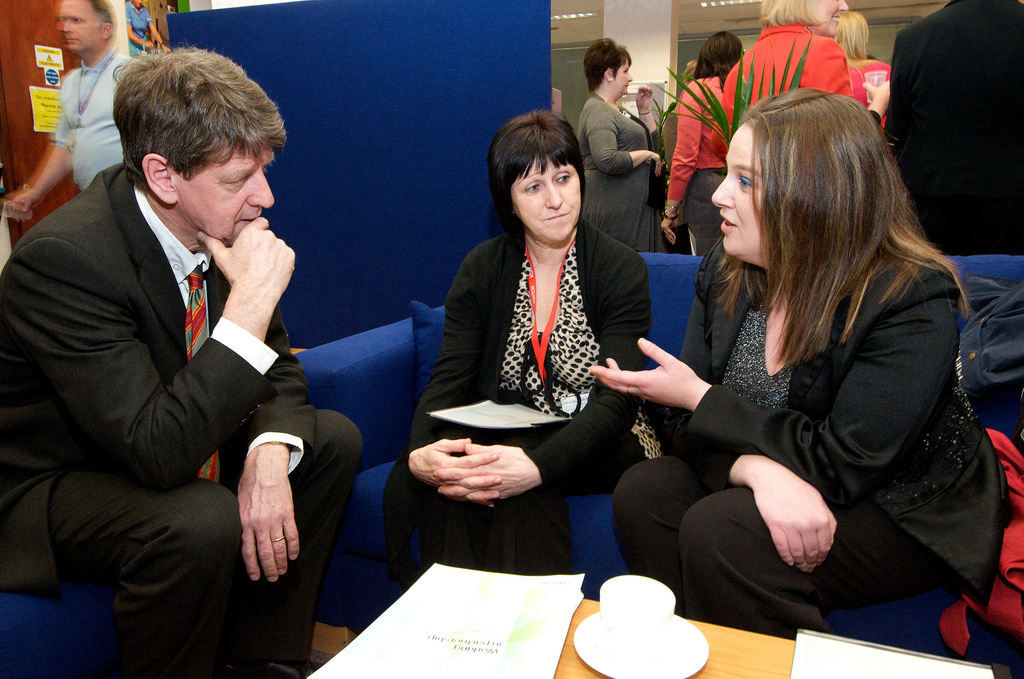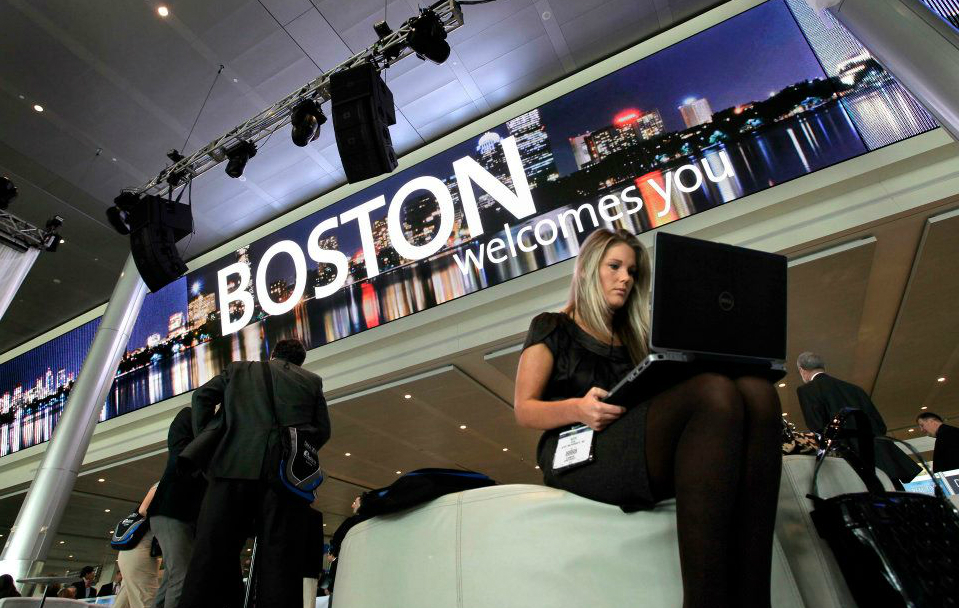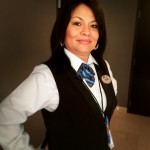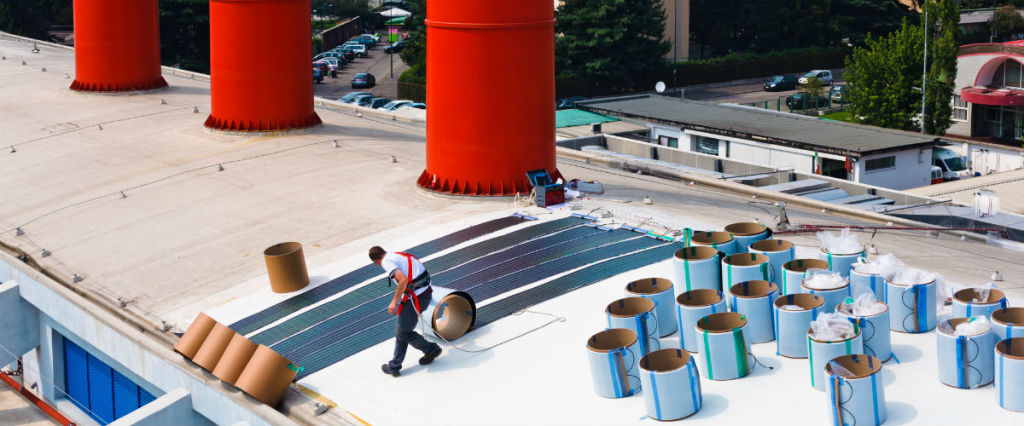Women are Better Negotiators Than Men in Certain Contexts
Women are better negotiators than men in certain situations, according to a meta-analysis of 51 studies from around the world.
“One reason men earn higher salaries than women could be women’s apparent disadvantage vis-à-vis men in some types of negotiations,” said lead author Jens Mazei, a doctoral candidate at Germany’s University of Münster. “But we discovered that this disadvantage is not inevitable; rather, it very much depends on the context of the negotiation.”
The analysis of the studies featuring 10,888 participants found that when women negotiated on behalf of another person, when they knew about the bargaining range, and when they had experience in negotiating, they were better at negotiating than men.
“Our analysis suggests ways to lessen or even reverse gender differences in negotiations favoring men,” said co-lead author Joachim Hüffmeier, PhD, of the Federal Institute for Occupational Safety and Health, Dortmund, Germany. “It looks as though gender roles no longer give men a bargaining advantage if women are trained in negotiation, have information about the bargaining range, and if they are negotiating for other individuals.”
The analysis looked exclusively at research of actual negotiations where a final economic outcome was achieved by women and men.
“Our meta-analysis thus shows that differences between men and women in economic outcomes are not inevitable but strongly depend on the context,” the authors wrote. “We hope that our findings stimulate further research on gender differences in economic negotiation outcomes.”
(photo credit: The Open University (OU) via photopin cc)
Boston Convention & Exhibition Center to Get Wireless Upgrade
The Boston Convention & Exhibition Center (BCEC) is getting a wireless overhaul, as the Massachusetts Convention Center Authority (MCCA) begins a $2.6 million upgrade for the venue. The upgrade will increase the number of existing wireless access points from 113 to at least 580, meaning a 413 percent increase in number of access points throughout the BCEC.
The MCCA has upgraded the wireless infrastructure at the BCEC four times since 2004. The implementation of this wireless network will mark a complete overhaul of the original wireless infrastructure, and a transition from a traditional “coverage” wireless system, which focuses on signal strength over a wide area, to an advanced “high-density” system. The new system will increase the BCEC’s wireless capacity, sending focused beams of wireless connectivity. More powerful access points enable more users to connect per access point, resulting in significantly improved signal strength.
“Today’s meeting attendees come to conventions with at least two Wi-Fi enabled mobile devices and the expectation that they will receive reliable, fast wireless connectivity,” said IAVM member James E. Rooney, executive director of the MCCA. “Boston is the hub of innovation and technology leadership, so meeting professionals and event attendees expect more from Boston. Our goal is to operate the two most technologically advanced centers in the world, not according to us but in the judgment of our clients. We are confident our latest investment in our wireless infrastructure will allow us to further exceed the expectations of our BCEC customers.”
The project is slated to be complete for live-testing and phased implementation in May through September 2015. Also in 2015, the MCCA will begin developing a plan for a wireless upgrade at the John B. Hynes Veterans Memorial Convention Center for installation in 2016.
(Image: MCCA Facebook page)
Mystery Shopping at AT&T Stadium
My wife was legitimately camouflaged in a green t-shirt from her alma-mater, while I awkwardly tried to look the part of an alumni from a university 16x larger than the athletic-less art college I attended. Getting a game of catch to happen at my school required a full marketing campaign, and here we were walking into the buzz of tens of thousands of alumni and fans ready for a high-stakes game of college football. We walked through the glass doors of the AT&T Stadium employee entrance, one hour before the kick-off of the Texas Farm Bureau Shootout featuring (now No. 5) Baylor versus Texas Tech.
Our mission, at the generous invitation of Paul Turner, CFE, director of operations and security for AT&T Stadium, was to roam the stadium and secretly observe his team. Paul had equipped us with an employee handbook, an orientation webinar, and a copy of game-day materials used by stadium staff that provided a timeline of events, credentialing details, and a few reminders concerning customer service.
 We began with Paul in his command center, where an array of camera footage, status reports, and staff communications ran across his monitors. We got a sneak-peek at an amazing new system of multi-megapixel cameras being tested in the stadium, and we saw how quickly a housekeeping request could be called-in, tracked, and resolved before affecting the guest experience anywhere in the venue.
We began with Paul in his command center, where an array of camera footage, status reports, and staff communications ran across his monitors. We got a sneak-peek at an amazing new system of multi-megapixel cameras being tested in the stadium, and we saw how quickly a housekeeping request could be called-in, tracked, and resolved before affecting the guest experience anywhere in the venue.
At one point it was asked, “What about handling live mascots?”
Paul acknowledged that collegiate animals (longhorns, bears, tigers…) and weaponry (cannons, rifles…) present a few unique challenges with these types of events. They’ve learned to ask in production meetings, “Are you planning on bringing anything that poops or explodes?”
A client once responded, “Well, just our head coach.”
After our orientation with Paul, we began to wander the venue. Our credentials granted us access to most of the public spaces, so we started at one end of the bowl and slowly made our way through major clubs, sponsor lounges, and concession areas. The cleanliness of the building, every inch of it, was noticeable. My minivan and AT&T Stadium are the exact same age, but only one of them smells like crayons and has F&B residue permanently tattooed into the upholstery. Every area of the stadium was in pristine condition—even Paul’s desk.
We also kept an eye out for great moments of customer service. Overall, we felt that the staff were noticeably hospitable. A fellow IAVM colleague and mystery shopper remarked that it literally felt like 100 percent of the staff were engaging and friendly. The stadium staff was so approachable in fact, that we ended up talking to quite a few of them:
Dora, nicknamed the “Queen Attendant”, has been a suite attendant with AT&T Stadium for five years. She loves the guests in her suite and works hard to meet every expectation. A personal highlight for her was hosting Mike Rawlings (currently the mayor of Dallas, Texas) for an event. We were very kindly invited to felt obligated to thoroughly investigate Dora’s suite, and her smile throughout our visit reflected the great service and atmosphere experienced by all of her guests that day.
Russell worked the parking lot at the former Texas Stadium and has been a security supervisor at AT&T Stadium for all five years. Russell welcomed us to the stadium when we first arrived and personally escorted us to the command center when I mentioned that we would just cut across the field. When I asked Russell what great guest service means to him, he replied, “I work for you. You pay me, and if that means that I need to walk you all the way around the field, then that is fine. I just want you to experience this great stadium.” I also asked Russell about Paul, and he mentioned that Paul helps bring great attitudes out of staff members.
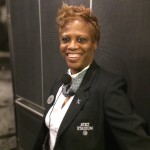 Ora was on her second day, working the elevator. Her smile was because she loves meeting people (and because her post offers a great view of the game on a nearby digital screen). “I’ll take you wherever you want to go,” was her greeting to us.
Ora was on her second day, working the elevator. Her smile was because she loves meeting people (and because her post offers a great view of the game on a nearby digital screen). “I’ll take you wherever you want to go,” was her greeting to us.
Part of our mystery shopping strategy was to ask for directions from a lot of staff members. At one point, we listened to the directions, then walked the opposite way. The stadium staff member quickly followed up with us and let us know that we were about to walk the entire circumference of Arlington to get to our destination. She kindly pointed again in the right direction, and away we went. Later on, we asked for directions to a club that was literally on the opposite end of the stadium. The staff member could sense our lack of excitement and provided a few route options that would avoid traffic and help us get there quicker.
 As my wife and I were leaving the stadium, I stopped to point out the LED art-installation “Exploded View” by artist Jim Campbell. When you walk by the piece, you don’t realize that the 2,000+ LED bulbs are actually playing Cowboys highlights (watch a video, then come back!). We stopped for a second, and Marty, a concierge, walked up and greeted us. He shared details about the piece and then answered a few of my questions about working at AT&T Stadium. He mentioned the chemistry of the staff, how he loves to hear people say that they have had a wonderful experience, and that he even helped get his sister onboard as a fellow concierge.
As my wife and I were leaving the stadium, I stopped to point out the LED art-installation “Exploded View” by artist Jim Campbell. When you walk by the piece, you don’t realize that the 2,000+ LED bulbs are actually playing Cowboys highlights (watch a video, then come back!). We stopped for a second, and Marty, a concierge, walked up and greeted us. He shared details about the piece and then answered a few of my questions about working at AT&T Stadium. He mentioned the chemistry of the staff, how he loves to hear people say that they have had a wonderful experience, and that he even helped get his sister onboard as a fellow concierge.
“I’ve only missed three operating days here at the stadium,” Marty said. “It was during one of those days that a guest crashed their wheelchair and got tangled in the installation!”
Marty called himself a guardian of the art, but he was equally committed to ensuring that every guest, including the “visiting team” had a great experience at AT&T Stadium. There was a phrase he used at some point during our conversation that wrapped the day of secret shopping up quite well:
“Welcome to my home.”
(Photo credit: A_Vandalay)
Complex Jobs Help Increase Memory and Thinking Skills
Managing a venue can be a complicated endeavor, and that’s a good thing for your memory and thinking.
According to new research published in Neurology, people whose jobs require more complex work with other people may gain longer-lasting memory and thinking abilities compared to people who do less complex work.
“These results suggest that more stimulating work environments may help people retain their thinking skills, and that this might be observed years after they have retired,” said study author Alan J. Gow, PhD, of Heriot-Watt University and the Center for Cognitive Aging and Cognitive Epidemiology in Edinburgh, Scotland. “Our findings have helped to identify the kinds of job demands that preserve memory and thinking later on.”
Complex jobs were ones, for example, that involved coordinating or synthesizing data, negotiating with others, and instructing and mentoring people. Non-complex jobs included such things as copying or comparing data and taking instructions.
The issue that is often raised, though, is whether stimulating environments help increase a person’s cognitive abilities or if people with high cognitive skills seek out challenging occupations.
“These results actually provide evidence for both theories,” Gow said. “Factoring in people’s IQ at age 11 explained about 50 percent of the variance in thinking abilities in later life, but it did not account for all of the difference. That is, while it is true that people who have higher cognitive abilities are more likely to get more complex jobs, there still seems to be a small advantage gained from these complex jobs for later thinking skills.”
(photo credit: Eduardo Mueses via photopin cc)
Company Wants to Stretch Its Solar Cloth Across Stadiums
A start-up company in the United Kingdom wants to cover stadium roofs with solar panels. Solar panels made from cloth. Stretchy cloth.
“The Cambridge, England-based, Solar Cloth Company is beginning to run trials of its solar cloth, which uses lightweight photovoltaic fabric that can be stretched across parking lots or on buildings that can’t hold heavy loads, such as sports stadiums with lightweight, retractable roofs,” Katie Valentine reported for ThinkProgress.org.
The company—which won the 2014 Solar U.K. Industry Awards’ Building-Integrated Photovoltaic Solar Innovation of the Year award—claims there are 320 square miles of U.K. roof space and 135 square miles of U.K. parking space that could be covered with the solar cloth, resulting in enough solar-generated energy to power the U.K.’s grid three times.
The cloth weighs just a little more than seven pounds (compared to almost 50 pounds for standard solar panels), and it’s flexible.
“[The panels] can be laid over almost all low-load bearing structures, and bonded to most structural fabrics to allow application in tensile structures, stadia, and agricultural land covers,” the company said on its website.
Copper indium gallium diselenide (CIGS) is used as the base technology because of its higher conversion rate and flexibility , the company’s CEO and founder, Perry Carroll, told The Engineer.
“…because CIGS uses a 100 times less semiconducting material than silicon cells, the embedded energy used to manufacture them is less,” Carroll said. “According to the U.S. Department of Energy, assuming a 30 year-life of the solar installation, crystalline silicon PV [photovoltaic] payback time is estimated to be 2-4 years. CIGS PV payback time is estimated to be 1-2 years.”
(Image: Solar Cloth Co.)
Do you want to receive a Front Row News weekly digest?
Categories
- Allied (861)
- Architecture (147)
- Arenas (747)
- Career (897)
- Convention Centers (895)
- Education (623)
- Events (1,544)
- Food & Beverage (193)
- Foundation (113)
- Guest Experience (1,496)
- Industry News (2,270)
- Leadership (1,888)
- Marketing (150)
- Membership (2,000)
- Music (213)
- Performing Arts Centers (454)
- Professional Development (409)
- Research (127)
- Safety & Security (442)
- Sports (763)
- Stadiums (608)
- Student (159)
- Technology (516)
- Ticketing (92)
- Touring (82)
- Trends (364)
- Uncategorized (755)
- Universities (218)
- Video (25)
- Young Professional (198)
Twitter Feed
- Twitter feed loading
Recent Posts
- Cobb Convention Center Atlanta Reopens After a Major Renovation and Reveals A New Logo
- Orange County Convention Center Announces Appointment of Heather Peeples as Fiscal & Operational Support Manager
- College Park Center and Texas Hall Welcome Kristina Hill to Executive Director Role
- Cincinnati Convention Center Appoints Brian Clark as Assistant General Manager
- Capital One Arena Hosts Record-Setting PWHL Game, Highest-Attended In-Arena Game in U.S. Women’s Hockey History
Categories
- Allied
- Architecture
- Arenas
- Career
- Convention Centers
- Education
- Events
- Food & Beverage
- Foundation
- Guest Experience
- Industry News
- Leadership
- Marketing
- Membership
- Music
- Performing Arts Centers
- Professional Development
- Research
- Safety & Security
- Sports
- Stadiums
- Student
- Technology
- Ticketing
- Touring
- Trends
- Uncategorized
- Universities
- Video
- Young Professional
Archives
- January 2026
- December 2025
- November 2025
- October 2025
- September 2025
- August 2025
- July 2025
- June 2025
- May 2025
- April 2025
- March 2025
- February 2025
- January 2025
- December 2024
- November 2024
- October 2024
- September 2024
- August 2024
- July 2024
- June 2024
- May 2024
- April 2024
- March 2024
- February 2024
- January 2024
- December 2023
- November 2023
- October 2023
- September 2023
- August 2023
- July 2023
- June 2023
- May 2023
- April 2023
- March 2023
- February 2023
- January 2023
- December 2022
- November 2022
- October 2022
- September 2022
- August 2022
- July 2022
- June 2022
- May 2022
- April 2022
- March 2022
- February 2022
- January 2022
- December 2021
- November 2021
- October 2021
- September 2021
- August 2021
- July 2021
- June 2021
- May 2021
- April 2021
- March 2021
- February 2021
- January 2021
- December 2020
- November 2020
- October 2020
- September 2020
- August 2020
- July 2020
- June 2020
- May 2020
- April 2020
- March 2020
- February 2020
- January 2020
- December 2019
- November 2019
- October 2019
- September 2019
- August 2019
- July 2019
- June 2019
- May 2019
- April 2019
- March 2019
- February 2019
- January 2019
- December 2018
- November 2018
- October 2018
- September 2018
- August 2018
- July 2018
- June 2018
- May 2018
- April 2018
- March 2018
- February 2018
- January 2018
- December 2017
- November 2017
- October 2017
- September 2017
- August 2017
- July 2017
- June 2017
- May 2017
- April 2017
- March 2017
- February 2017
- January 2017
- December 2016
- November 2016
- October 2016
- September 2016
- August 2016
- July 2016
- June 2016
- May 2016
- April 2016
- March 2016
- February 2016
- January 2016
- December 2015
- November 2015
- October 2015
- September 2015
- August 2015
- July 2015
- June 2015
- May 2015
- April 2015
- March 2015
- February 2015
- January 2015
- December 2014
- November 2014
- October 2014
- September 2014
- August 2014
- July 2014
- June 2014
- May 2014
- April 2014
- March 2014
- February 2014
- January 2014
- December 2013
- November 2013
- October 2013
- September 2013
- August 2013
- July 2013
- June 2013
- May 2013
- April 2013
- March 2013
- February 2013
- January 2013
- May 2012
- March 2012
- December 2011
- November 2011
- October 2011
Recent Comments
- Frank Bradshaw, Ph.D., CVE on John Meyer, CVE, a Tireless Advocate of Certification for Venue Professionals, Has Died
- Neil Sulkes on Hilary Hartung, Friend to Many in Venue Marketing, Has Left Us
- Jason Parker, CVE on The Devastation of Hurricane Helene and How We Can Support One Another
- Larry Perkins on Touhey Testifies Against Speculative Ticketing Before Congressional Subcommittee
- Peter Secord on Major Players for Planned Elkhart Amphitheater Were in the Mix at VenueConnect

